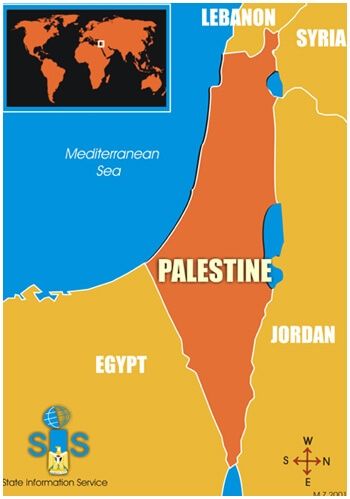In Remnants of War Become Art in Gaza, AFP promotes a “feel good” human interest story. The article describes how Palestinians in Gaza are turning remnants of the military conflict into art. The subject matter is intriguing and inspiring.
Of course it’s nothing new. For years residents of Sderot have been turning the remnants of Gazan rockets into beautiful sculptures. A share of the proceeds are used to purchase bomb shelters. Although they have been doing this for many years, I could find no AFP story about the effort.
However, the problem is not that they are covering this local effort in Gaza. Neither is the problem that they use quotations from the local artists. Many of these quotations are both inspiring and highlight the story of transforming weapons into objects of beauty. There is nothing wrong with the following quotation from one of the artists:
“I like the idea of making something beautiful from these devices which kill us: I will take the vase home and regularly put roses in it.”
But when the quotations are laced with propaganda that is reprinted without comment, the whole article takes on a more biased approach:
Mohammed al-Zamar’s garden is strewn with shell cases and shrapnel which he recovered from his home after a bombing.
On one of the pieces he has written: “No to war, we’ve had enough.” Next to it is a map of historical Palestine.
One might get the impression that he is trying to make an anti-war message with the shell cases and shrapnel. But the reality is nothing of the sort. When he displays these objects next to a map without Israel (and “historical Palestine” is just that,) his statement is actually pro-war.
He is not just saying no to war, he is saying no to the State of Israel.
“We love life, but the occupier (Israel) imposes death and destruction on us. I want to transform the Israeli war into an expression of the Palestinians’ irrepressible will to live.”
Despite the fact that this is a human interest story, the AFP still has the responsibility to give its readers an accurate understanding of the news event that serves as its background. Letting such a remark stand without explanation is an endorsement of the false accusation that Palestinians in Gaza were the innocent victims of an aggressive Israeli military attack.
The story could have been written with greater balance if it referred to the Israelis turning terrorist rockets into art work. The story also could have been more accurate if it mentioned that despite Zamar’s feelings, throughout the conflict Israel was seeking to stop the rocket fire that has been plaguing southern Israeli communities for years.
Unfortunate, AFP chose to do neither and the result is a story that fails on the most basic standards of journalistic integrity.
Image: CC BY-SA HonestReporting


